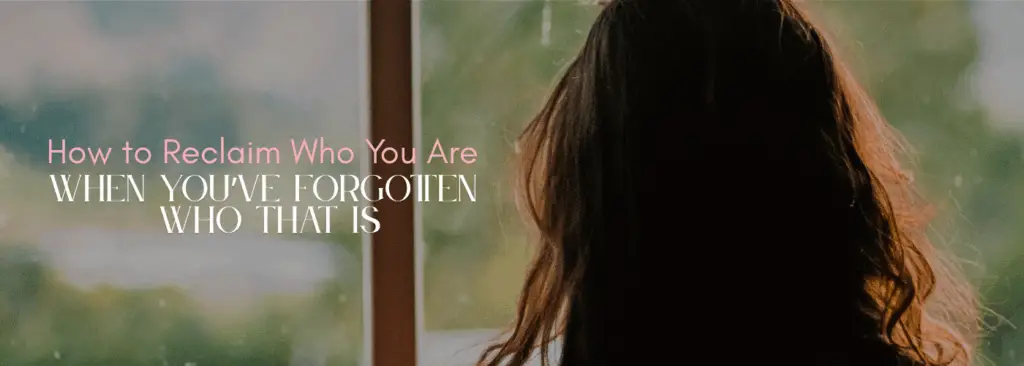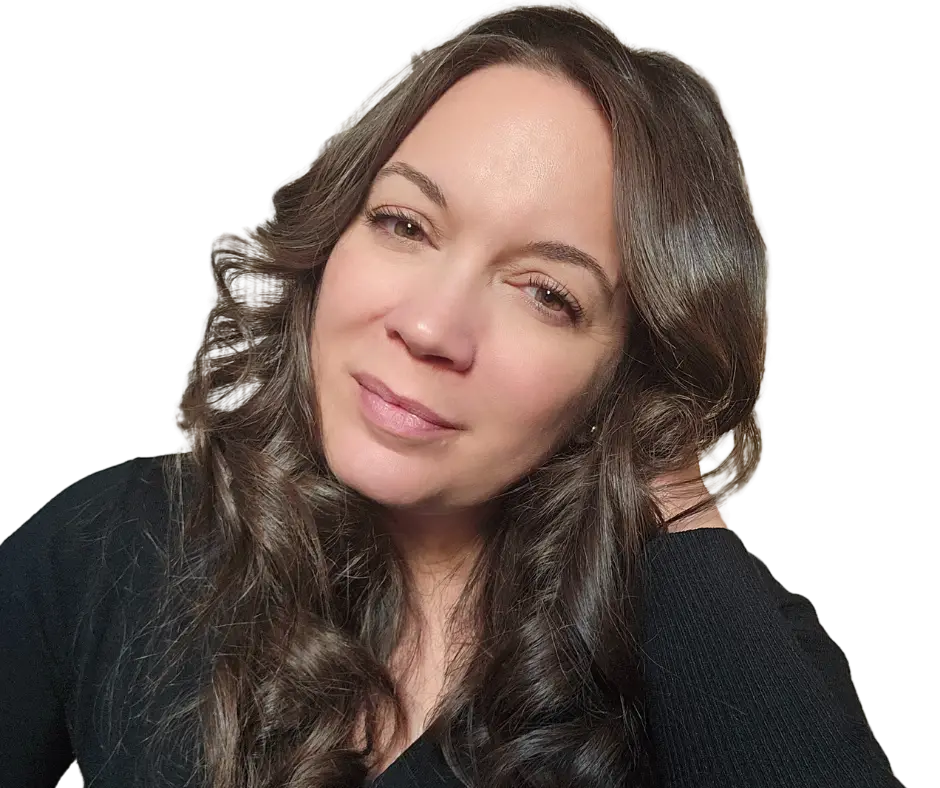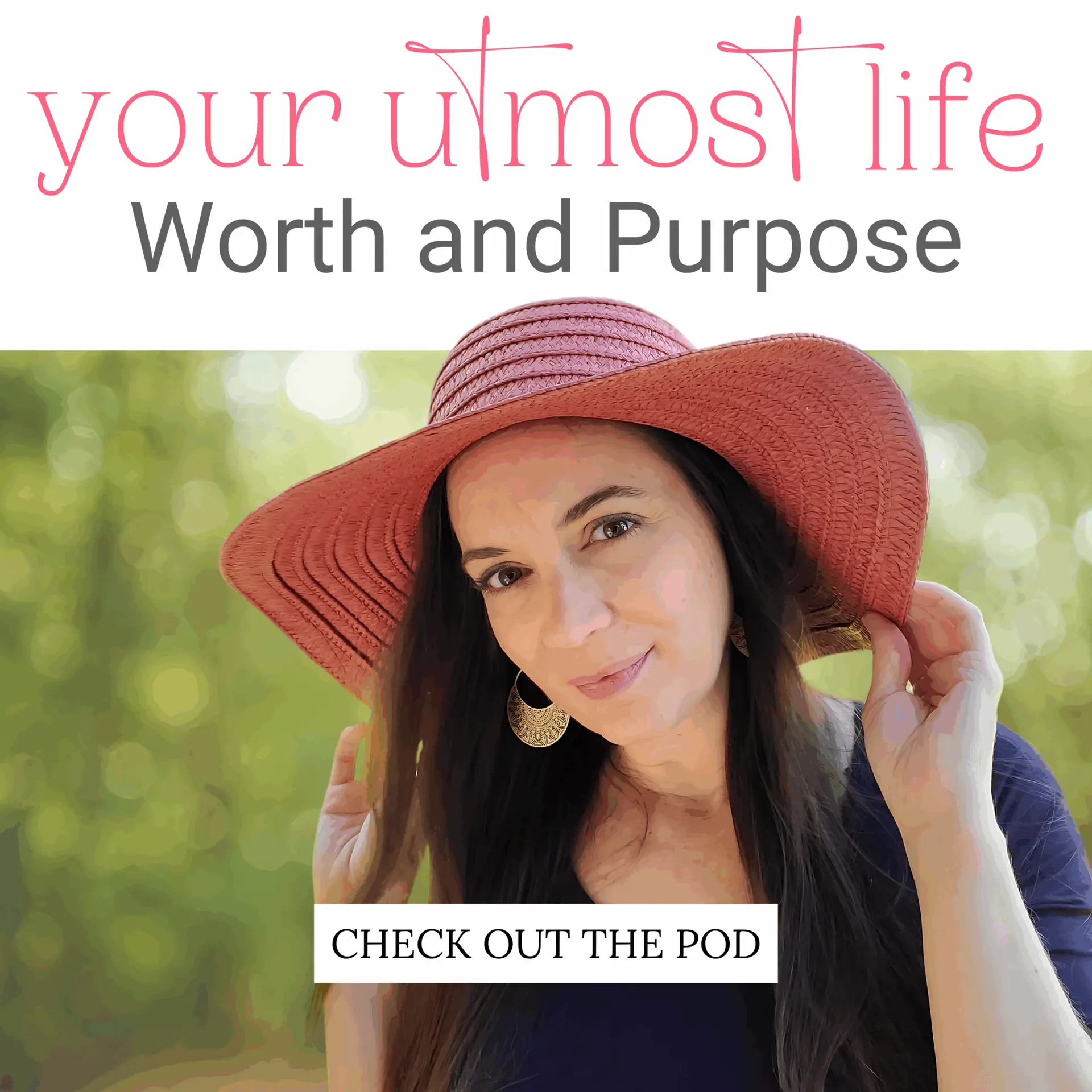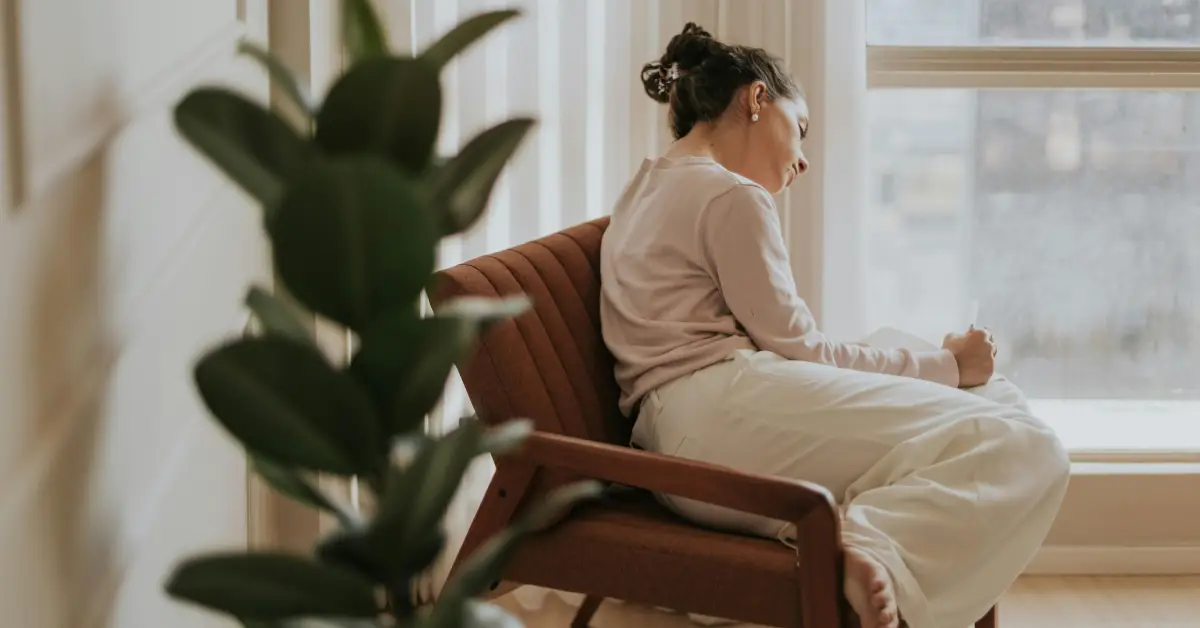Have you ever stood in your kitchen, sat in your car, or paused in your closet and thought, “Where did I go?” Not because something major happened. But because, slowly, quietly—nothing did. And in that silence, you faded.
You’ve spent years tuned into everyone else’s needs, dreams, and schedules. And now, with the house quieter and the roles shifting, your identity feels like it slipped out the back door while you were doing dishes.
Friend, that ache? That uncertainty? It’s not failure. It’s a sacred invitation: to come back to yourself.
Today, we’re not blowing up our lives. We’re waking up inside them.
The Invisible Shift That No One Talks About
According to the State of Motherhood survey by Motherly, 71% of moms say their primary identity is “mom.” And when they’re not in the workforce, that number jumps to 87%.
Research from the University of Phoenix and Motherly reveals that 49% of working mothers experience burnout at work, with midlife women facing a unique confluence of stressors—changing family dynamics, career plateaus, and physical transitions all happening simultaneously.
So what happens when that role—once all-consuming—begins to shift? When the hands that once reached for you now reach for independence?
You’re left asking questions like:
- Who am I when I’m not needed in the same way?
- What do I like?
- What do I even want?
This isn’t just a season of change. It’s what I call the Identity Eraser Effect—a quiet, unspoken unraveling of self-worth that happens when your entire value system centers on serving everyone else.
I lived it. And one evening, it all came to a head when I set the dinner table and only laid out three plates. Not because I forgot someone. But because I didn’t count myself.
The Reality of Reclaiming Yourself After Motherhood
Reclaiming yourself after motherhood is more than just finding free time—it’s a rediscovery of your core identity that may have been overshadowed by years of caregiving. According to recent studies, mothers are most likely to experience identity shifts and role confusion in their mid-30s to mid-40s, especially when their children are entering their teen years and becoming more independent.
The journey back to self often involves navigating:
- Chronic fatigue that doesn’t improve with rest
- Feeling overwhelmed by daily responsibilities
- Emotional numbness or detachment
- Loss of interest in activities you once enjoyed
- Physical symptoms like headaches or digestive issues
- A persistent sense of inadequacy
What makes midlife mom exhaustion particularly challenging is that it often coincides with other life transitions—caring for aging parents, navigating relationship changes, career shifts, and physiological changes.
It’s no wonder that studies show this phase creates the highest levels of stress and the lowest levels of life satisfaction for many women.
You’re Not Lost—You’re Buried
This moment doesn’t require escape or reinvention. It requires reconnection.
You don’t need to:
- Quit your job
- Walk away from your family
- Start over from scratch
You just need to come home to the parts of you that have been waiting.
And it starts with truth-telling.
How to Reclaim Your Identity After Years of Motherhood
The empty nest period creates complex emotions for many mothers. Research shows that one-fifth of midlife women now identify this transition as among their most challenging experiences in reclaiming themselves.
While some women may feel relief from daily parenting pressures, many experience what researchers call “role loss”—when a central part of your identity suddenly shifts. This isn’t just about missing your children; it’s about fundamentally questioning who you are outside of your maternal role.
As one study participant described it: “I felt like the lights literally went out. After years of organizing my entire existence around my children’s needs, I didn’t know who I was anymore.”
Three Myths That Keep You Invisible
1. “If I feel this lost, I need to blow everything up.”
Nope. The problem isn’t your life—it’s your relationship with it. You don’t need demolition. You need renovation.
At midlife, many women make dramatic changes out of desperation. According to research, the U-curve of happiness suggests that women’s happiness often bottoms out around age 40, then gradually rises again. This isn’t the time for rash decisions, but for intentional rediscovery.
2. “I should just be grateful.”
Gratitude doesn’t cancel desire. You can love your family and still want to rediscover yourself. Wanting more isn’t selfish—it’s sacred.
Studies show that 57% of parents experience burnout, with mothers particularly affected. Acknowledging this reality isn’t complaining—it’s the first step toward healing.
3. “It’s too late.”
Research consistently shows women’s happiness actually begins to rise again in midlife. This isn’t the end. It’s your commencement.
The research is clear: women who embrace this transitional period as an opportunity for growth often report increased life satisfaction. Studies on the “U-shaped curve of happiness” consistently show that many women experience renewed vitality and purpose in their 50s and beyond.
Understanding the Emotional Journey of Reclaiming Yourself
The process of reclaiming yourself after motherhood can bring up complex emotions that may resemble depression, but they aren’t always the same. According to mental health experts, the identity shift that comes with children growing up is primarily linked to role transition, while depression involves persistent feelings of sadness, hopelessness, and loss of interest in activities.
It’s important to recognize when professional support is needed. If you experience:
- Persistent thoughts of worthlessness
- Inability to feel pleasure in anything
- Significant changes in appetite or sleep patterns
- Thoughts of harming yourself
These may indicate clinical depression requiring professional support.
Don’t hesitate to speak with a healthcare provider.
The Your Utmost Life Method
This is why I created the Your Utmost Life Method—a 3-phase framework to help women reclaim their identity without walking away from the life they’ve built. We walk through:
1. Discover – Who are you beyond your roles? Peel back the layers. Reconnect with the YOU underneath the routines.
2. Design – What does a life aligned with your true self look like? No more default settings. It’s time to architect something beautiful, honest, and sustainable.
3. Do – How do you live it? With aligned habits, gentle boundaries, and soul-first decisions.
The Physical Impact of Self-Neglect During Motherhood
The years of putting yourself last don’t just affect your emotional health—they take a physical toll as well. Studies have linked prolonged self-neglect during intensive motherhood years to:
- Disrupted sleep patterns
- Weakened immune function
- Increased inflammation
- Digestive issues
- Headaches and muscle tension
- Elevated risk of chronic health conditions
This is why addressing exhaustion isn’t a luxury—it’s essential self-care.
Your physical well-being depends on recognizing the signs of burnout before they manifest as health problems.
3 Small Practices to Begin Today
Morning Mirror Exercise
Look at yourself—really see her. Say, “I see you.” Then ask, “What do you need today?”
This simple practice can begin reconnecting you with yourself. Research shows that self-compassion exercises significantly reduce symptoms of burnout and increase overall wellbeing.
Identity Inventory
Write out all your current roles. Circle the ones that bring you joy. Star the ones you consciously chose. Then list three you want to reclaim or explore.
Studies show that women who actively reflect on their roles and consciously reassess their priorities during midlife transitions report greater satisfaction and purpose.
One Decision Rule
Make one decision today based purely on your desire—not obligation. The blue shirt because you love it. The longer route because the scenery soothes you.
Research on decision fatigue shows that making even small autonomous choices can help restore a sense of control and reduce feelings of overwhelm.
Practical Steps to Reclaim Your Time and Energy
One of the most challenging aspects of reclaiming yourself after motherhood is the feeling that there’s never enough time for self-discovery. According to time-use studies, mothers spend an average of 65 hours per week on combined work and family responsibilities—leaving precious little time for personal renewal.
Some practical ways to reclaim your time:
- Create “non-negotiable” blocks in your calendar for activities that nourish you
- Practice saying “no” to requests that drain your energy without adding value
- Delegate household tasks whenever possible
- Reduce multitasking, which research shows actually decreases efficiency
- Set boundaries around technology use to create mental space
Remember: time for yourself isn’t selfish—it’s necessary for your wellbeing and the wellbeing of those who depend on you.
You Were Never Meant to Disappear
You were meant to emerge. Fully. Confidently. Whole.
If you’re ready to start—without needing a breakdown or burning it all down—download the free Your Utmost Life Alignment Check-In at yourutmostself.com/checkin. It’s the exact tool I used to begin my journey back to myself.
The next chapter of your life doesn’t need to wait. It begins the moment you say: I matter too.
Research confirms what many women intuitively know: learning how to reclaim yourself after motherhood can lead to profound growth. Studies show that women who successfully navigate this identity transition often report greater authenticity, improved relationships, and a deeper sense of purpose in the second half of life.
Your journey back to yourself isn’t selfish—it’s essential. And it starts today.














